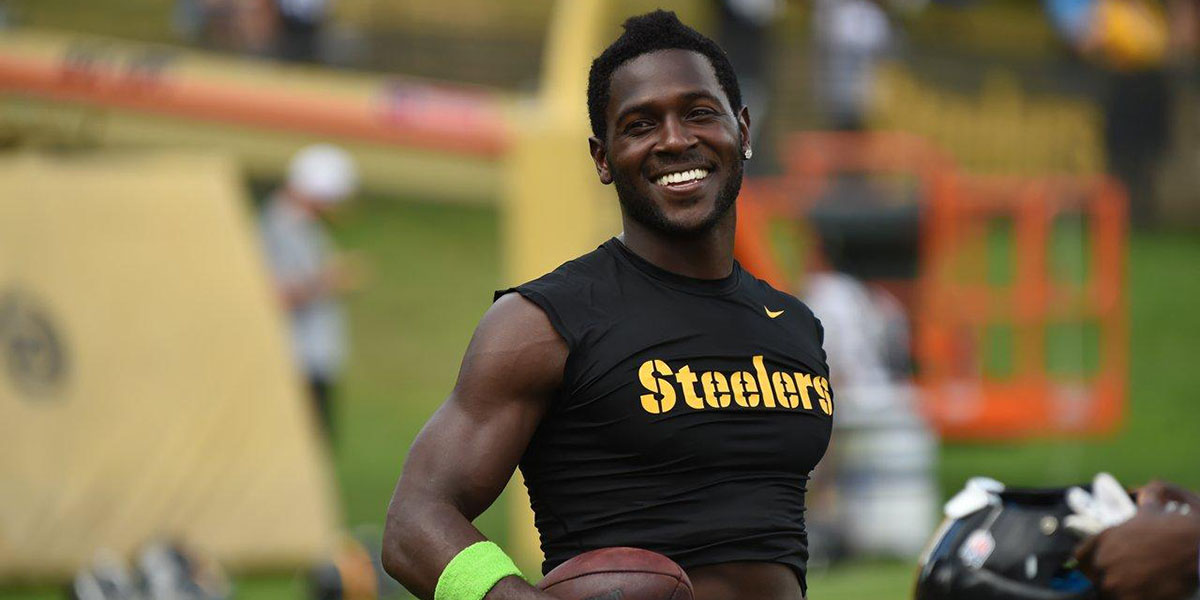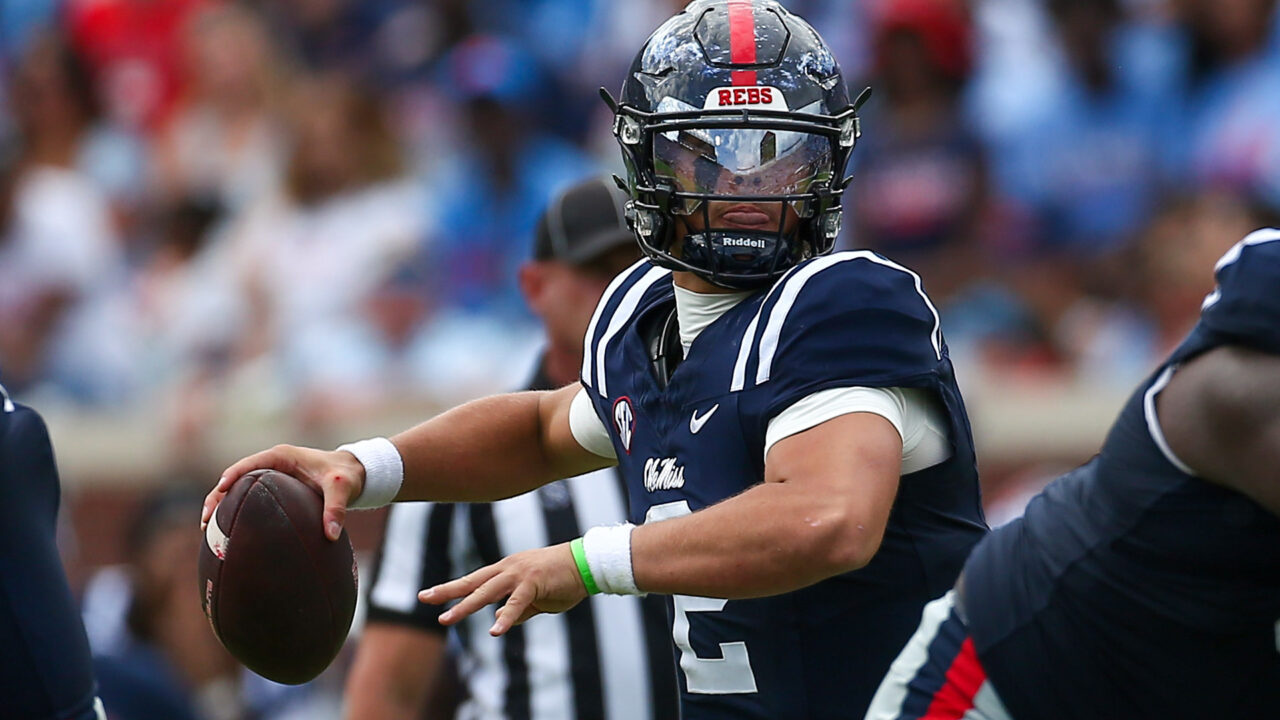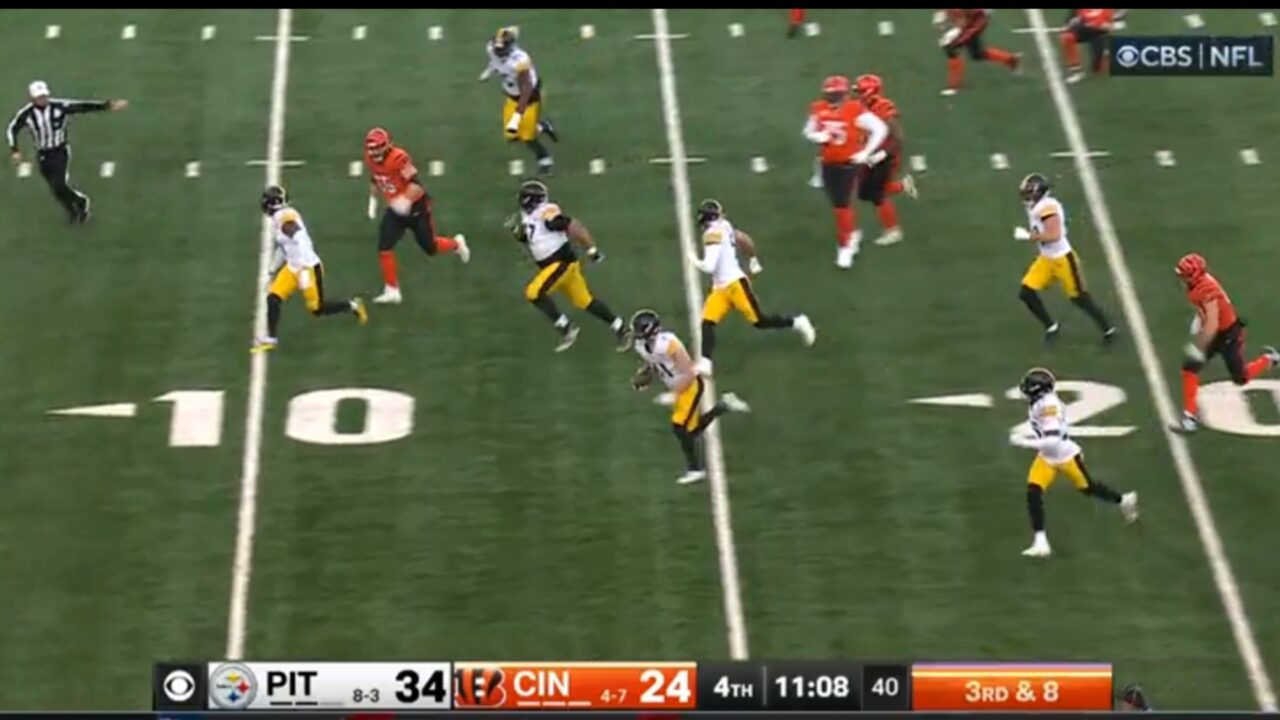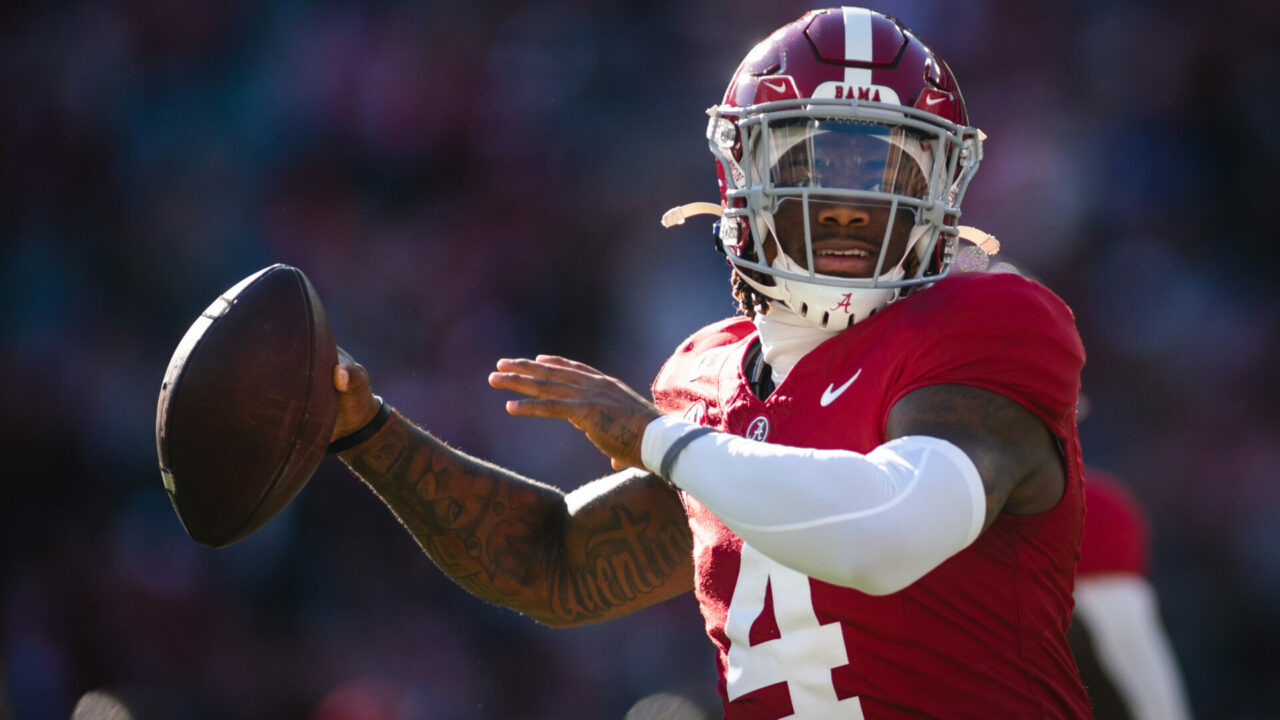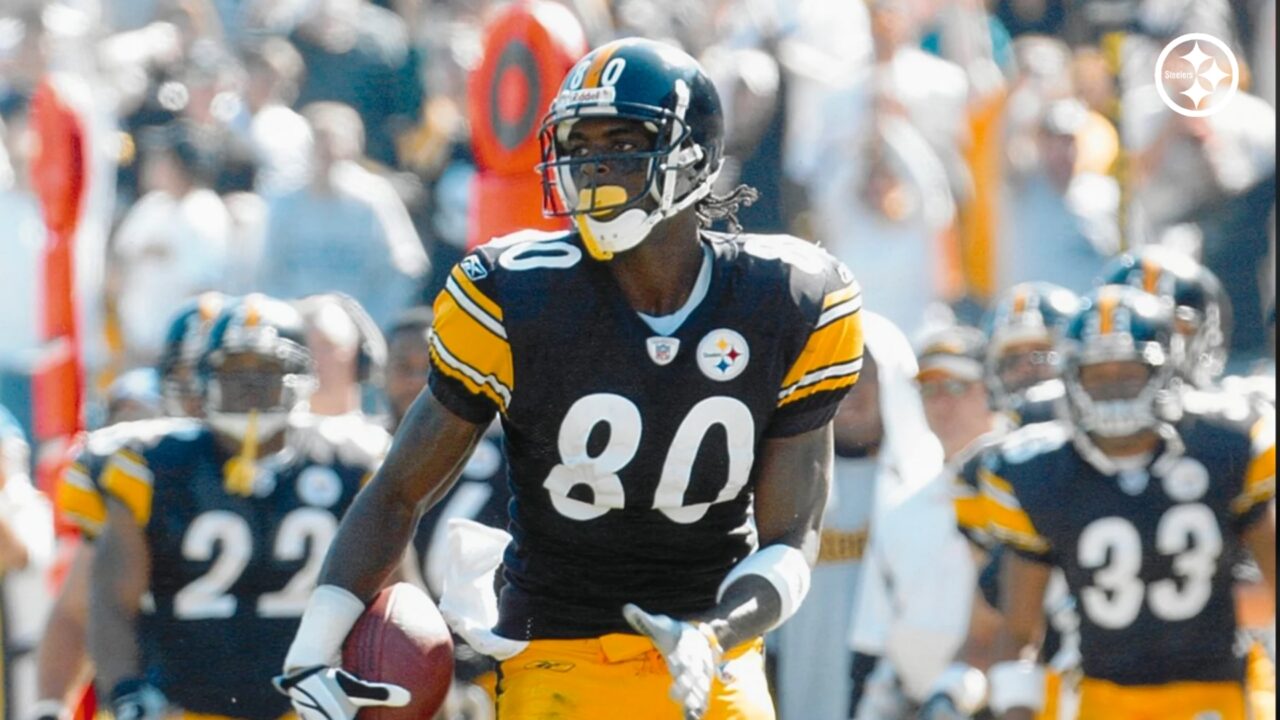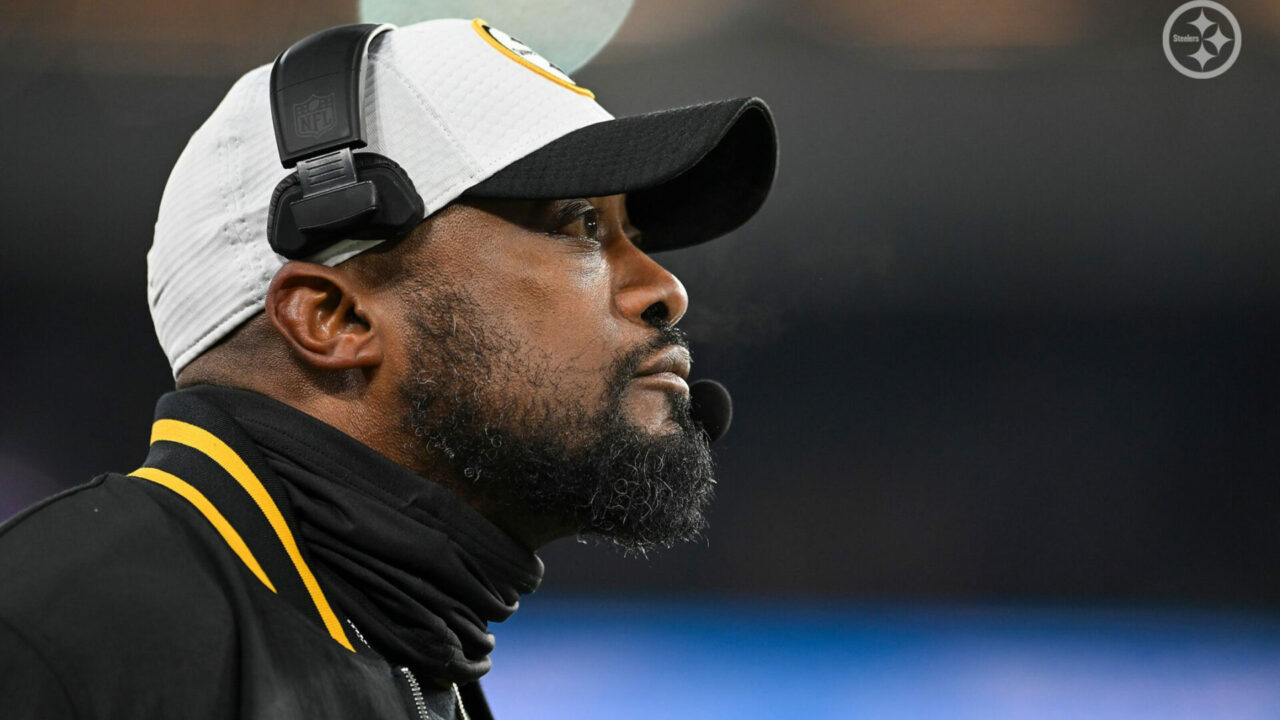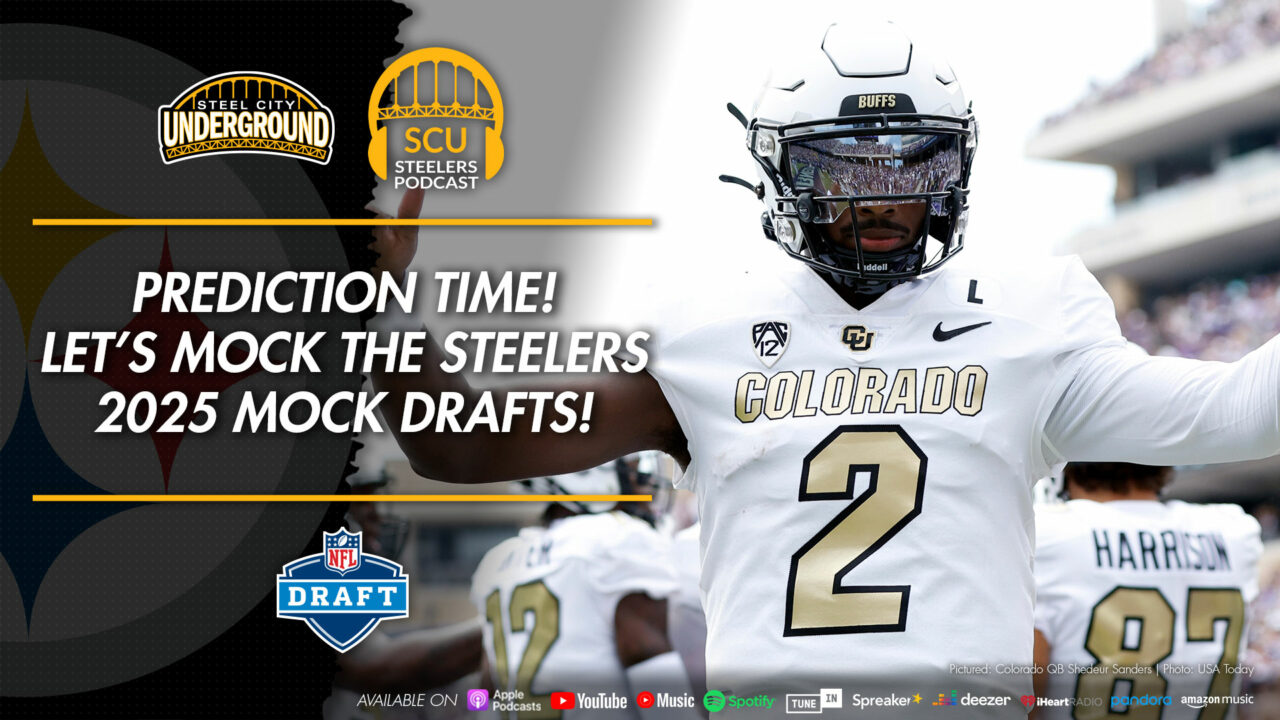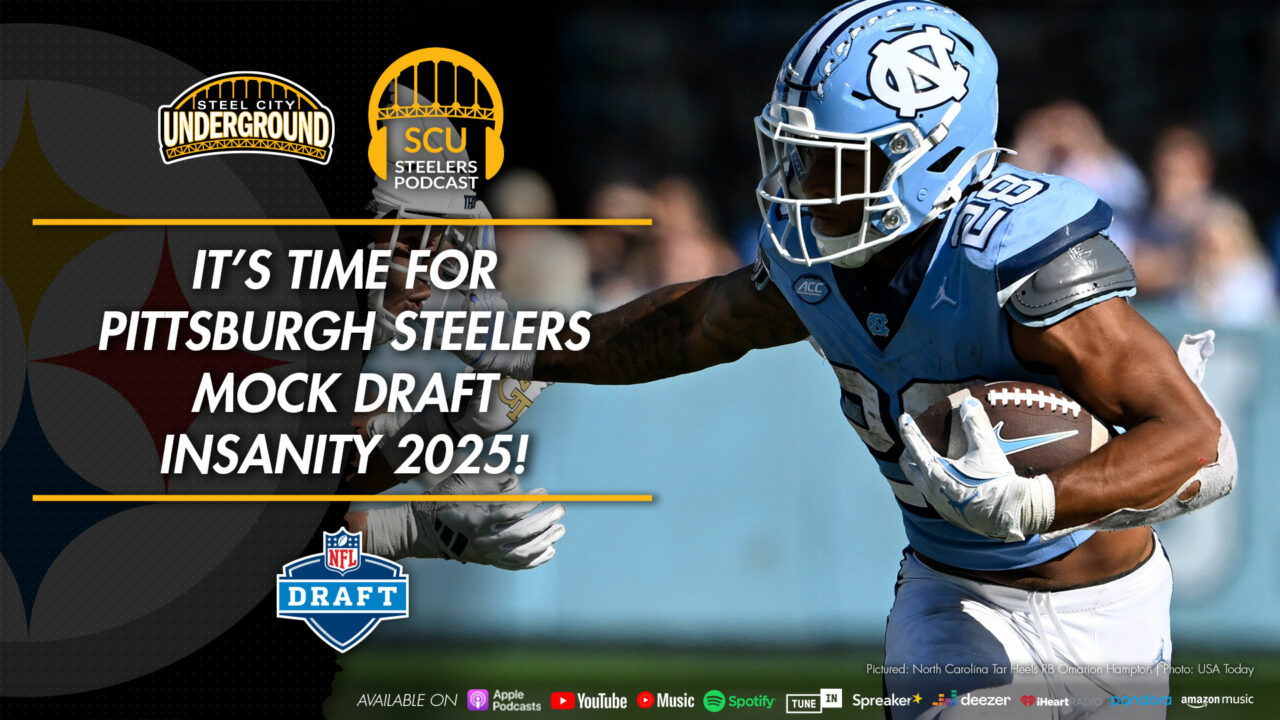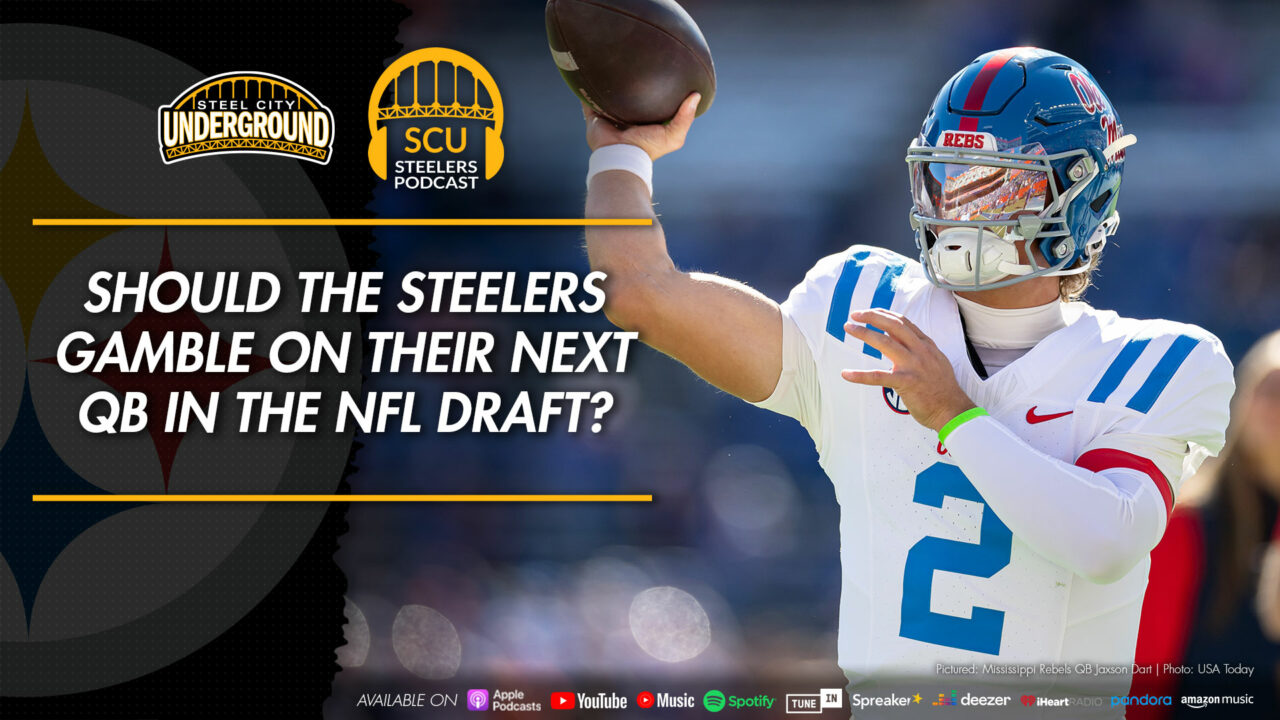Was Antonio Brown justified to “go off” on referee?
That’s the question I asked on today’s Steel City Underground Podcast addressing the situation around Antonio Brown and field judge Terry Brown, a referee with whom Brown got into a verbal altercation with at Wednesday’s joint practice between the Pittsburgh Steelers and Detroit Lions.
No joke: Antonio Brown in the verge of being ejected… from a **preseason joint practice** for unsportsmanlike conduct toward an official
— Chris Adamski (@C_AdamskiTrib) August 10, 2016
Antonio Brown pops off on ref. Ref gave it right back. Said wouldve ejected him if it was a game.
— Mark Kaboly (@MarkKaboly) August 10, 2016
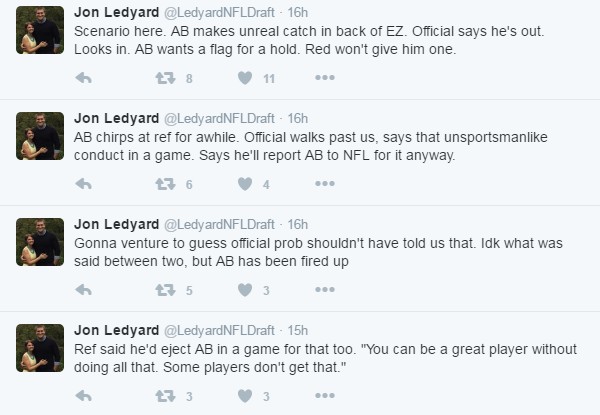
According to Chris Adamski of TribLIVE.com, the official called a pass incomplete, which lead to a public display of protest between AB and field judge, Terry Brown, who later commented on the situation:
“We’re here to enforce the rules… This is their practice. He will do it here and get away with it. But if he thinks he can do that and get away with it in a game, he’s got another thing coming. I’m still going to report it to the league.”
In addition, Terry Brown told AB’s teammate, wide receiver Darrius Heyward-Bey:
“(the team) better get (AB) under control or I’m going to throw him out.”
“He’s not going to push me; I’m a veteran, 11 years. I’m not going to tolerate it.”
Some of the reaction I read online said the referee should “grow thicker skin.”
Grow thicker skin?
Perhaps professional athletes should start acting more professional.
https://twitter.com/LedyardNFLDraft/status/763515315447795712
If a referee mentions someone does something that would cost them an ejection in a game, wouldn’t that be valuable information for the player to make note of?
And rather than acting on emotions, and making an impulse decision to eject Antonio, Terry Brown swung by a teammate and passed along information which would keep #84 in the “game.” Those actions are indicative of a veteran referee who understands the frustration of a no-call, regardless of whom is right or wrong, and took the high road in handling the situation.
Of course, Terry Brown made some comments right back to Antonio Brown, but who wouldn’t? And why would the referee be blamed for the player’s actions? If anything, Terry is matching Antonio’s comments with the same intensity and tone: something anyone with kids knows all too well. If you don’t, would you modify the player’s behavior, or make them aware that their actions are unacceptable?
If it’s a public display, the reaction is going to be public. If a quiet word is said, a quiet word is returned.
Remember, respect isn’t given: it’s earned.
“Growing thicker skin” is the wrong approach to belittling, and cursing at game officials, but let’s turn this around and say this was said to an opponent. Would it still be appropriate?
I think many people would say “flag him” or “throw him out.”
In this game-like setting, or even a real game environment, how many flags do you think should be thrown for swearing? Would words from the official, “chewing ass” as called in our profession, but a better avenue to take?
I believe any player, and his teammates, would prefer the “ass chewing” versus the alternative of a flag.
Continuing the hypothetical situations, let’s pretend the player’s action was directed at a coach. I believe a coach would “chew” the player back as well! Thus, the same reaction, regardless if it was the opposing coach or it was the player’s coach! (In the latter situation, the reaction might be “kick him off the team” or “bench him!”)
So what is the recourse of a game official here? Bite your lip and let it go?
Why? Should that sort of behavior be acceptable? I don’t believe it is.
Of course we’re all going by what’s being reported in the articles floating around, but for the life me, as an official myself, I can’t understand why it’s acceptable to treat referees like garbage when they’re simply doing their job. I doubt Terry Brown honestly cares if AB gets a flag or not. He’s an unbiased party, trying to make calls to the best of his ability.
Referees prefer to go unnoticed, and do not want to negatively impact a game. They are human, however, and do make mistakes, yet, are expected to be 100% perfect in their application of the rules. Of course, the officials are also handcuffed to a number of rules changes which have critics rebranding the NFL as the “No Fun League.” Remember, referees are just trying to do their job: if their job requires them to toss a flag for ticky-tack downfield contact, they should. If they were instructed to “let things go” they will do the same.
Of course, interpretations will differ between every individual official just as skills differentiate between players. Overall, the game officials are instructed to follow a certain set of directives by the league: ultimately, they do their job or they’re out of a job.
That’s why I think it’s unfair to expect perfection from the league’s zebras. Do we expect perfection from players? Of course not! What if AB drops a sure catch or Big Ben overthrows a wide open receiver? Do we renounce their ability to play football?
Life goes on, and whether Terry Brown made a good call or bad call by not throwing a flag, he still made a decision on the field. Referees make hundreds, if not thousands of decisions in a season. Players must recognize that a decision which doesn’t weigh in their favor is part of the game, and something they must play through.
However, there are decisions which are cut-and-dry that players can avoid: having altercations with game officials is one of those penalties athletes can avoid. By doing so, the player can also prevent a penalty which could hurt his team’s outcome.
If you’re unsure, just ask Adam “Pacman” Jones about that!
